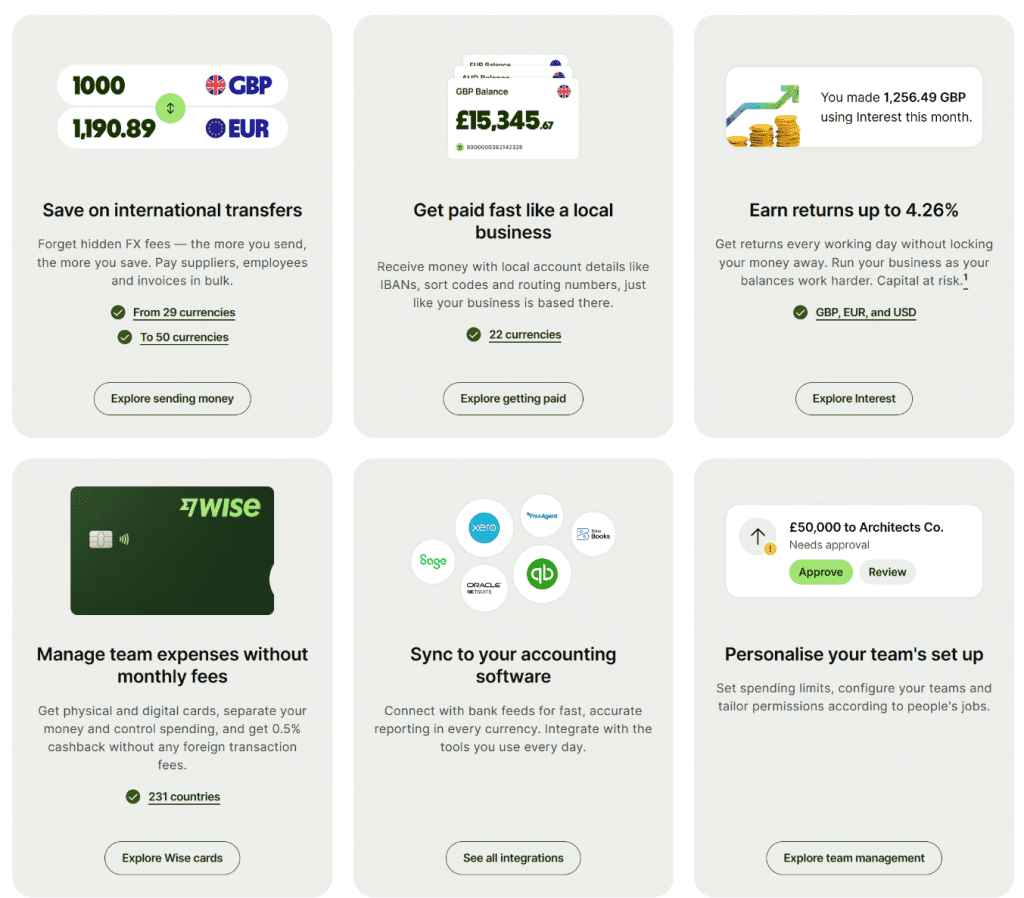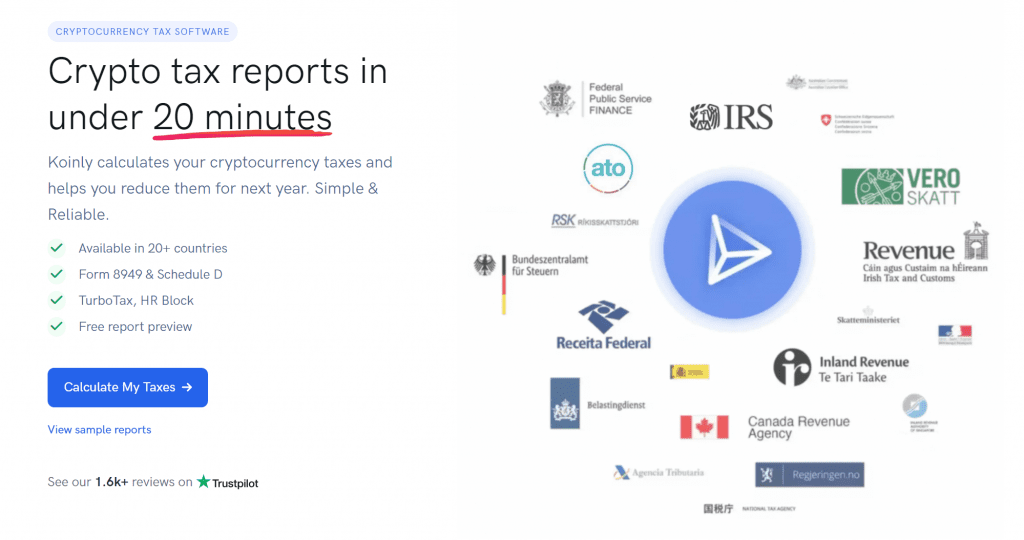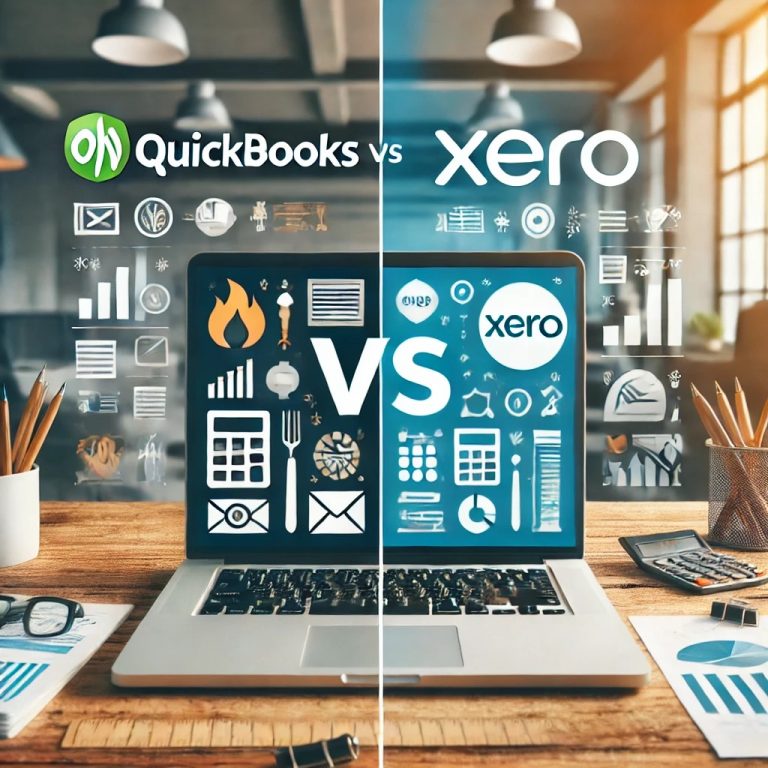Navigating the financial landscape as an entrepreneur can be daunting, especially if accounting isn’t your forte. The need for accurate financial management is undeniable, but what if you could simplify this aspect of your business without becoming an accounting expert? Enter the world of accounting tools designed specifically for non-accountant entrepreneurs. These tools can transform how you handle your finances, making it easier, faster, and more efficient to keep your business on track.
Disclosure: If you click on my affiliate/advertiser’s links, I am going to receive a tiny commission. AND… Most of the time, you will receive an offer of some kind. It’ s a Win/Win!
In today’s competitive business environment, time is of the essence, and efficiency is key. Leveraging the right accounting tools can be a game-changer, enabling you to focus more on growth and innovation rather than being bogged down by financial details. The top 5 accounting tools for non-accountant entrepreneurs that we’ll explore in this article will help streamline your financial processes, reduce errors, and provide insights that can drive your business forward.
Accounting software has evolved significantly, offering features that cater to the needs of entrepreneurs who might not have a background in finance. From automated invoicing and expense tracking to real-time financial reporting and tax preparation, these tools are designed to be user-friendly and powerful.
Imagine having a system that not only manages your finances but also helps you make informed decisions based on real-time data. With the right accounting tools, you can achieve just that. These tools are not just for large corporations but are tailored for small to medium-sized enterprises and startups, ensuring that even the newest business owners can keep their finances in check.
As we explore into the top 5 accounting tools for non-accountant entrepreneurs, consider how each tool can fit into your business model, streamline your operations, and ultimately contribute to your success. Let’s explore these essential tools that can elevate your business to new heights.
List of Contents
1. **QuickBooks Online: Comprehensive and User-Friendly**
– Explore how QuickBooks Online offers an all-in-one solution for managing finances, invoicing, expenses, and more, tailored for entrepreneurs.
2. **FreshBooks: Best for Invoicing and Time Tracking**
– Learn about FreshBooks’ intuitive interface and powerful invoicing and time-tracking features ideal for service-based businesses.
3. **Xero: Perfect for Growing Businesses**
– Discover how Xero supports growing businesses with its robust features, including bank reconciliation, payroll, and real-time reporting.
4. **Wave: Best Free Accounting Software**
– Find out how Wave provides a free yet comprehensive accounting solution for entrepreneurs, covering invoicing, receipt scanning, and more.
5. **Zoho Books: Integrated Business Management**
– Delve into Zoho Books’ capabilities, which extend beyond accounting to CRM, project management, and inventory control, offering a complete business solution.
6. **Key Features to Look for in Accounting Tools**
– Understand the essential features to consider when choosing an accounting tool, such as ease of use, scalability, and integration options.
7. **How Accounting Tools Can Save You Time and Money**
– Explore the benefits of using accounting tools to streamline financial processes, reduce manual errors, and enhance productivity.
8. **Integrating Accounting Tools with Other Business Systems**
– Learn about the importance of integrating accounting tools with other business systems like CRM, ERP, and e-commerce platforms for seamless operations.
9. **Tips for Getting the Most Out of Your Accounting Software**
– Get practical tips on how to maximize the use of your accounting software, including setting up automation and customizing reports.
10. **Real-Life Success Stories of Entrepreneurs Using Accounting Tools**
– Read inspiring case studies of entrepreneurs who have successfully leveraged accounting tools to grow their businesses and achieve financial clarity.
11. **Summary & Conclusion: Empower Your Business with the Right Accounting Tools**

1. QuickBooks Online: Comprehensive and User-Friendly
QuickBooks Online stands out as a top accounting tool for non-accountant entrepreneurs due to its comprehensive and user-friendly design. This cloud-based software offers an all-in-one solution for managing your business’s finances, making it ideal for small business accounting. With QuickBooks Online, you can effortlessly handle invoicing, track expenses, manage payroll, and generate detailed financial reports. Its intuitive dashboard provides a clear overview of your financial health, helping you make informed decisions without needing a finance degree.
The power of QuickBooks Online lies in its automation capabilities. You can set up recurring invoices, automate payment reminders, and sync your bank accounts for real-time reconciliation. This reduces the risk of manual errors and saves valuable time, allowing you to focus on growing your business. For example, if you run a startup, QuickBooks Online can streamline your financial management, freeing you from the complexities of accounting and enabling you to concentrate on strategic initiatives.
Failing to properly manage your finances can lead to cash flow problems, missed tax deadlines, and inaccurate financial reporting. QuickBooks Online mitigates these risks by providing reliable and accurate financial data, ensuring that your business remains compliant and financially healthy. Embracing this tool is a smart move for any entrepreneur looking to elevate their financial management.
2. FreshBooks: Best for Invoicing and Time Tracking
FreshBooks is a powerful accounting tool specifically designed for service-based businesses. Its standout features are its invoicing and time tracking capabilities, making it an excellent choice for freelancers, consultants, and small business owners. FreshBooks simplifies the invoicing process with customisable templates, automated payment reminders, and online payment options, ensuring that you get paid faster.
In addition to invoicing, FreshBooks offers robust time tracking features. You can easily track the time spent on various projects and convert billable hours into invoices with just a few clicks. This seamless integration between time tracking and invoicing ensures accurate billing and helps you maintain transparency with your clients. For example, a freelance graphic designer can use FreshBooks to log hours worked on different projects and send professional invoices directly to clients.
Properly tracking your time and invoicing clients accurately is crucial for maintaining a healthy cash flow and fostering client trust. FreshBooks’ user-friendly interface and powerful features make these tasks straightforward, allowing you to focus on delivering high-quality services. By automating these processes, you minimise the risk of errors and enhance your business’s efficiency and professionalism.
3. Xero: Perfect for Growing Businesses
Xero is an excellent accounting tool for growing businesses due to its robust features and scalability. Designed with the needs of small to medium-sized enterprises in mind, Xero offers comprehensive financial management, including bank reconciliation, payroll, and real-time financial reporting. Its cloud-based platform ensures that you have access to your financial data anytime, anywhere, making it a convenient choice for busy entrepreneurs.
One of Xero’s key strengths is its ability to integrate with over 800 business apps, including CRM, inventory management, and e-commerce platforms. This integration capability allows you to create a seamless business management system, improving efficiency and accuracy across your operations. For instance, an e-commerce store owner can sync their sales data with Xero, streamlining inventory management and financial reporting.
As your business grows, maintaining accurate financial records and complying with tax regulations becomes increasingly important. Xero’s real-time reporting and automatic bank feeds help you stay on top of your finances, ensuring that you can make informed decisions and avoid costly mistakes. Embracing Xero can significantly enhance your business’s financial management, supporting your growth and success.
4. Wave: Best Free Accounting Software
Wave is a top choice for non-accountant entrepreneurs looking for a cost-effective accounting solution. This free accounting software provides a comprehensive suite of features, including invoicing, expense tracking, and receipt scanning. Wave’s user-friendly interface makes it easy for entrepreneurs with little to no accounting experience to manage their finances effectively.
Despite being free, Wave does not compromise on quality. It offers powerful invoicing features, allowing you to create and send professional invoices, track payments, and manage overdue accounts. Additionally, Wave’s receipt scanning feature enables you to capture and organise receipts on the go, ensuring that you never miss an expense. For a startup operating on a tight budget, Wave offers a robust and reliable solution without the need for a financial investment.
Neglecting to keep accurate financial records can lead to significant issues, such as cash flow problems and difficulties during tax season. Wave helps mitigate these risks by providing a reliable platform for tracking your financial activities, ensuring that you remain organised and compliant. Leveraging Wave’s free accounting software can help you maintain a healthy financial foundation as your business grows.
5. Zoho Books: Integrated Business Management
Zoho Books goes beyond traditional accounting tools by offering an integrated business management solution. This comprehensive software combines accounting with CRM, project management, and inventory control, making it an ideal choice for entrepreneurs seeking a holistic approach to business management. Zoho Books’ powerful features ensure that all aspects of your business are interconnected, enhancing efficiency and accuracy.
With Zoho Books, you can manage your finances, track sales, monitor inventory levels, and handle project timelines all from a single platform. This integration reduces the need for multiple software solutions, saving time and reducing the risk of data discrepancies. For example, a small manufacturing business can use Zoho Books to manage inventory, track production costs, and generate financial reports, streamlining operations and improving profitability.
Failing to integrate your business systems can result in inefficiencies and missed opportunities. Zoho Books helps you avoid these pitfalls by providing a unified platform for managing all your business activities. By embracing Zoho Books, you can enhance your business’s overall efficiency, making it easier to achieve your growth and profitability goals.
6. Key Features to Look for in Accounting Tools
When choosing accounting tools for entrepreneurs, it’s crucial to consider key features that will support your business’s needs. User-friendliness, scalability, and integration capabilities are essential factors to ensure that the software can grow with your business and adapt to your changing requirements. Look for accounting tools that offer automated invoicing, expense tracking, and real-time financial reporting to streamline your financial processes.
Ease of use is particularly important for non-accountant entrepreneurs. A complex, difficult-to-navigate interface can lead to errors and inefficiencies. Opt for software with an intuitive design and comprehensive support resources to help you get the most out of the tool. Scalability is also vital, as your business’s needs will evolve over time. Ensure that the accounting tool can handle increased transaction volumes and additional features as your business grows.
Choosing the right accounting tool can make a significant difference in your business’s financial health. A well-chosen tool will help you maintain accurate records, comply with tax regulations, and make informed decisions. Neglecting to consider these key features can result in wasted time, increased errors, and potential financial setbacks.
7. How Accounting Tools Can Save You Time and Money
Accounting tools for entrepreneurs can significantly save time and money by automating routine financial tasks and reducing the need for manual data entry. By streamlining invoicing, expense tracking, and financial reporting, these tools free up your time to focus on strategic business activities. For instance, automated invoicing ensures that you send out invoices promptly, reducing the time spent on manual billing and improving cash flow.
Additionally, accounting tools help minimise errors, which can lead to costly financial discrepancies and compliance issues. Automated systems reduce the risk of human error, ensuring that your financial records are accurate and up-to-date. This accuracy is crucial during tax season, where mistakes can result in fines and penalties. By using accounting software, you can avoid these pitfalls and ensure that your business remains financially healthy.
Investing in accounting tools might seem like an additional expense, but the long-term savings and efficiency gains far outweigh the initial costs. These tools provide valuable insights into your financial health, helping you make data-driven decisions that can drive growth and profitability. Embracing accounting tools is a smart investment that can pay off significantly in the long run.

8. Integrating Accounting Tools with Other Business Systems
Integrating accounting tools with other business systems, such as CRM, ERP, and e-commerce platforms, is crucial for creating a seamless and efficient operation. This integration ensures that data flows smoothly between different systems, reducing the need for manual data entry and minimising the risk of errors. For example, integrating your accounting software with your CRM system allows you to synchronise customer data, improving invoicing accuracy and customer relationship management.
The benefits of integration extend to enhanced reporting capabilities. By combining financial data with operational data, you can gain deeper insights into your business performance. This holistic view enables you to make more informed decisions, identify trends, and address issues promptly. For instance, integrating your e-commerce platform with your accounting tool can provide real-time sales and inventory data, helping you optimise stock levels and improve cash flow.
Failing to integrate your business systems can result in data silos, inefficiencies, and missed opportunities. By leveraging integrated accounting tools, you can create a more cohesive and efficient business operation, driving productivity and growth. This approach ensures that you have a clear and accurate view of your business’s financial health, supporting better decision-making.

9. Tips for Getting the Most Out of Your Accounting Software
Maximising the benefits of your accounting software involves understanding its features and customising it to fit your business’s unique needs. Start by setting up automation for routine tasks such as invoicing, expense tracking, and bank reconciliation. Automation reduces manual workload and minimises errors, ensuring that your financial records are accurate and up-to-date.
Customising reports is another essential step. Most accounting tools offer a variety of reporting options that can provide insights into different aspects of your business. Tailor these reports to focus on key metrics that matter most to your business, such as cash flow, profit margins, and expense trends. Regularly reviewing these reports can help you identify opportunities for improvement and make data-driven decisions.
Taking advantage of the support resources available is also important. Many accounting tools offer tutorials, webinars, and customer support to help you navigate the software and resolve any issues. Engaging with these resources can enhance your understanding of the tool and ensure that you are using it to its full potential. By optimising your use of accounting software, you can streamline your financial management and support your business’s growth.
10. Real-Life Success Stories of Entrepreneurs Using Accounting Tools
Hearing real-life success stories can be incredibly motivating and provide practical insights into the benefits of using accounting tools. For instance, consider the story of Sarah, a freelance graphic designer who struggled with manual invoicing and tracking expenses. After switching to FreshBooks, Sarah was able to automate her invoicing process, track billable hours, and manage her expenses more efficiently. This change not only saved her time but also improved her cash flow, allowing her to focus on growing her business and taking on more clients.
Another example is Tom, the owner of a small e-commerce store. Tom used Wave’s free accounting software to manage his finances, which helped him stay organised without incurring additional costs. By leveraging Wave’s receipt scanning and expense tracking features, Tom was able to keep accurate records, simplify his tax preparation, and gain better insights into his business performance. You can start using Wave for FREE by clicking HERE.
These success stories highlight the transformative impact that accounting tools can have on small businesses. By choosing the right tool and using it effectively, entrepreneurs can overcome financial management challenges, improve efficiency, and drive business growth. These examples serve as a testament to the power of accounting software in helping non-accountant entrepreneurs achieve financial clarity and success.
11. Summary &Conclusion: Empower Your Business with the Right Accounting Tools
Choosing the right accounting tools for your business is a crucial step towards achieving financial stability and growth. Throughout this article, we’ve explored the top 5 accounting tools for non-accountant entrepreneurs, each offering unique features tailored to different business needs. QuickBooks Online provides a comprehensive, user-friendly platform; FreshBooks excels in invoicing and time tracking; Xero is perfect for growing businesses; Wave offers an excellent free solution; and Zoho Books integrates seamlessly with other business systems. These tools not only simplify financial management but also empower entrepreneurs to focus on what they do best—growing their businesses.
Implementing the right accounting software can save you time and money by automating routine tasks and reducing the risk of errors. This efficiency allows you to dedicate more time to strategic activities, such as customer acquisition, product development, and market expansion. Furthermore, accurate financial data provided by these tools enables you to make informed decisions, helping you steer your business in the right direction.
Integration with other business systems is another key advantage of using modern accounting tools. By connecting your accounting software with CRM, ERP, and e-commerce platforms, you can create a cohesive and efficient business operation. This integration not only streamlines processes but also provides valuable insights into your business’s performance, supporting better decision-making and enhancing overall productivity.
As you consider the options, remember that the right accounting tool should be user-friendly, scalable, and capable of integrating with your existing systems. Investing time in setting up and customising your chosen software will pay off in the long run, providing you with accurate financial records and helping you maintain compliance with tax regulations. The stories of entrepreneurs like Sarah and Tom demonstrate how transformative the right tool can be, turning financial management from a daunting task into a streamlined, efficient process.
Now is the time to take action! Assess your business’s needs, explore the features of the tools discussed, and choose the one that best fits your requirements. Don’t let financial management hold you back. By leveraging the right accounting software, you can gain control over your finances, reduce stress, and focus on growing your business.
We invite you to return to our blog regularly for more insights and tips on elevating your business acumen and improving your leadership and business skills. At KrisLai.com, we are dedicated to helping entrepreneurs like you succeed by providing valuable resources and expert advice. Stay tuned for more articles, tutorials, and success stories that will inspire you and help you achieve your business goals.
Make the smart choice today—embrace the power of accounting tools and watch your business thrive. Your journey towards financial clarity and business success starts here, and we’re here to support you every step of the way.

- How Live Shopping Can Skyrocket Your Small Business Sales: The Ultimate Guide to Getting Started
- Turn AI Anxiety into Competitive Advantage: How to Future-Proof Your Workforce for the AI Revolution
- Unlock Profit: Calculate Customer Lifetime Value & Maximize Growth
- Creating a Customer Persona: A Step-by-Step Guide On How To Do It
- Unleashing the Power of Digital Signage: The Best Software to Transform Your Business







